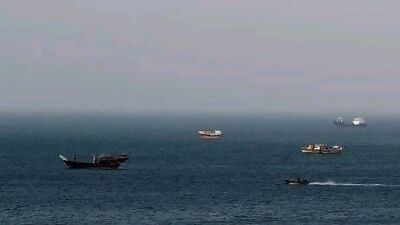MUSCAT // Iranian exporters in Oman are struggling to send home staples, such as rice, in the face of US-led sanctions against Iran.
The US last week ordered new penalties that gave US banks additional powers to freeze assets linked to the Iranian government, with the aim of forcing the Islamic republic to abandon its controversial nuclear programme.
The European Union has agreed to ban oil imports from Iran, starting on July 1, while other countries such as China and Malaysia have reduced or halted purchases of iron ore and palm oil.
Iranian traders say local and international banks are now denying them letters of credit, which finance their supply shipments to Iran.
"We have been doing this legitimate business for years; exporting to Iran rice, grain, cooking oil and other basic foodstuff. But banks in Oman are now denying us letter of credits because of sanctions. There are thousands of people in Iran who are relying on our shipments to survive," Hassan Ghafour, an Iranian businessman based in Sohar said.
Indian basmati rice, for example, is a staple food of Iranians exported to Tehran through various Gulf countries, including the UAE. About 400,000 tonnes of basmati rice are exported each year from India to Oman, according to the Indian Embassy in Muscat. While about 70,000 to 90,000 tonnes are consumed in Oman, about 300,000 tonnes are sent on to Iran.
"But now this has all changed," said Meer Sajjad, another local Iranian businessman. "Without the bank's credit, it is very difficult to send anything to Iran. We don't have the cash to do it, neither our Iranian counterparts. The sanctions make it difficult for them to send money in advance."
Mr Sajjad said the penalties aimed at limiting Iran's ability to sell oil, which accounts for 80 per cent of its foreign revenue, will also deprive Iranian businessmen with the cash to pay for imports.
"I don't think it is right. They are not hurting the regime but normal people who are now deprived of food," said Mr Sajjad.
Officials at two local banks, who did not want to be identified or reveal the financial institutions at which they work, confirmed that some banks have been restricting letters of credits to exporters of goods to Iran, due to the sanctions.
But a Muscat-based Iranian resident, who did not want to be identified, said that "good Samaritans" in Oman, as well as from other Gulf states, are helping.
"Out of humanitarian reasons, wealthy businessmen in Oman and other Gulf states, are giving loans to Gulf-based Iranians exporters to help them raise the cash to send food home," he said.
Iran maintains its nuclear programme is peaceful and not designed to build nuclear devices. It denounces the sanctions as aggression.

